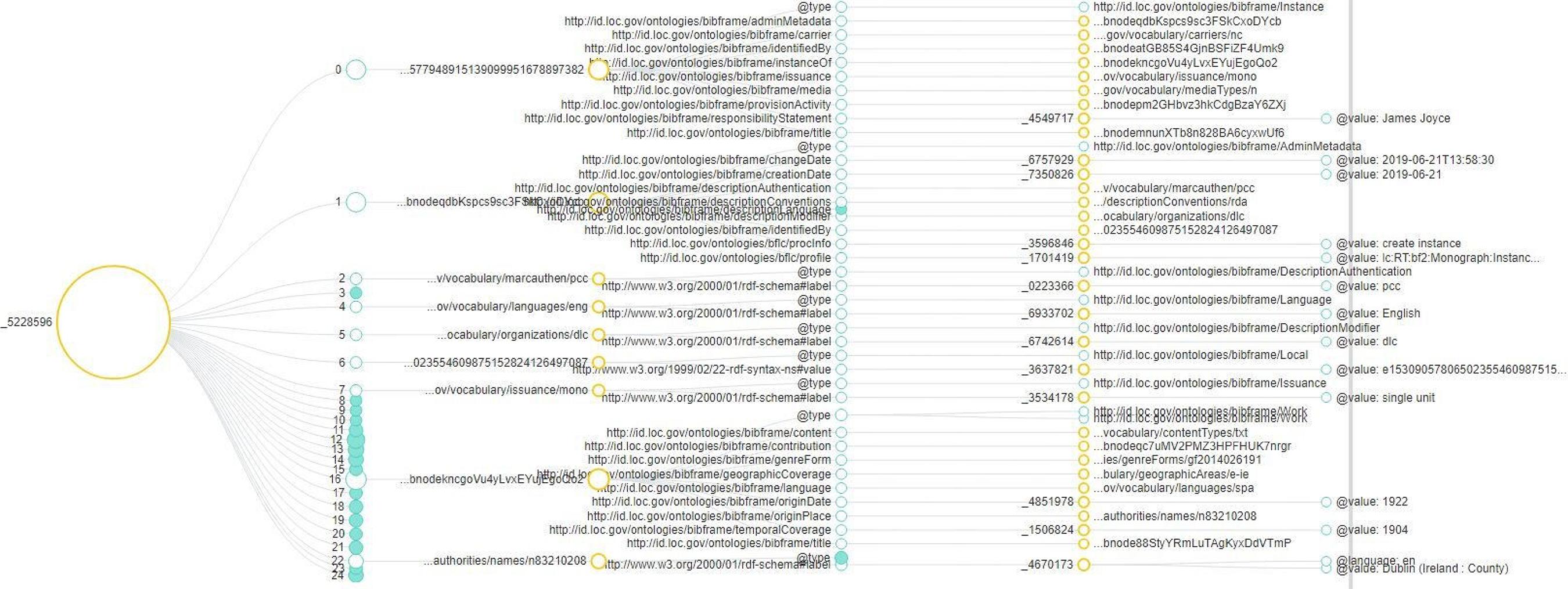Abstract
This work analyzes the implementation of BIBFRAME (Bibliographic Framework) in libraries, aiming to identify future trends in the description, linkage, and recovery of information resources. The complex demands of library users have led to the emergence of sophisticated methods for the description of new information resources. These methods propose suggestive changes in the recovery of such resources, since the model of linked data on which BIBFRAME is based reveals the analysis of the relationships between the data of a certain domain of documentary information. The systematization of the library’s data and its transformation in linked data suppose the generation of search and recovery interfaces that are highly intuitive and graphically attractive for the final user. Thus, the progress of BIBFRAME implementation in library information systems will depend on its ability and flexibility to structure the millions of Machine-Readable Cataloging records that are available in libraries worldwide. In addition, we point to the ambitious goal of reaching universal interoperability, which is glimpsed among the different information systems that are present on the Web.
Keywords
BIBFRAME; Bibliographical data; Linked data; MARC; Information resources

 Fuente:
Fuente: Fuente: Elaborado por el autor (2019).
Fuente: Elaborado por el autor (2019).